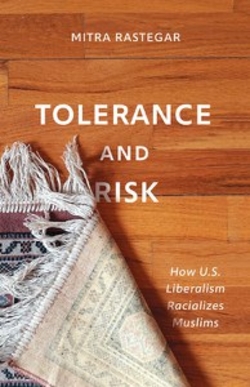 If the subtitle, "How U.S. Liberalism Racializes Muslims," confuses, that is because it originates in an unfamiliar far-left academic outlook. Here is the clearest explanation of Rastegar's muddy thesis: "Whereas empathy and identification operate to mark some Muslims as civilized 'like us,' others are pushed further into the categories of not simply uncivilized but also incomprehensible, inhuman, and monstrous." In other words, by praising some Muslims, liberals are in effect condemning others. This, in turn, racializes Muslims.
If the subtitle, "How U.S. Liberalism Racializes Muslims," confuses, that is because it originates in an unfamiliar far-left academic outlook. Here is the clearest explanation of Rastegar's muddy thesis: "Whereas empathy and identification operate to mark some Muslims as civilized 'like us,' others are pushed further into the categories of not simply uncivilized but also incomprehensible, inhuman, and monstrous." In other words, by praising some Muslims, liberals are in effect condemning others. This, in turn, racializes Muslims.
The author, a "clinical associate professor of liberal studies" at New York University, makes her point through "an analysis of broadly circulating media discourses about tolerating and sympathizing with Muslims." She finds that "articulations of liberal values create lines of distinction ... as they put forth only some Muslims as worthy of tolerance or sympathy." Indeed, worse than that, "They more broadly function as a policing and disciplining discourse that casts Muslims as tolerable only if they exhibit particular characteristics."
Examples of this alleged policing make up the bulk of Tolerance and Risk. These include, to cite the publisher's promotional material, "human-interest stories and opinion polls of Muslim Americans, media representations of education activist Malala Yousafzai, LGBTQ activist discourses, local New York controversies surrounding Muslim-led public projects, and social media discourses of the Syrian refugee crisis."
Naturally, this reviewer takes a special interest in one local New York controversy, the Kahlil Gibran International Academy, in which he played a small part in 2007. Rastegar devotes thirty-five pages to review this flap in granular detail, grandly concluding from it that "highly affective words that encapsulate a particular threat most strongly associated with Muslims—irrational, intolerant, Islamically motivated violence—function as bioweapons and tools for assessing particular Muslims."
In fact, a poorly-conceived project headed by a transparent Islamist was temporarily resisted; what Rastegar's hysterics conceal is that the KGIA later, predictably, came into existence and still functions. So much for racializing, policing and bioweapons.
